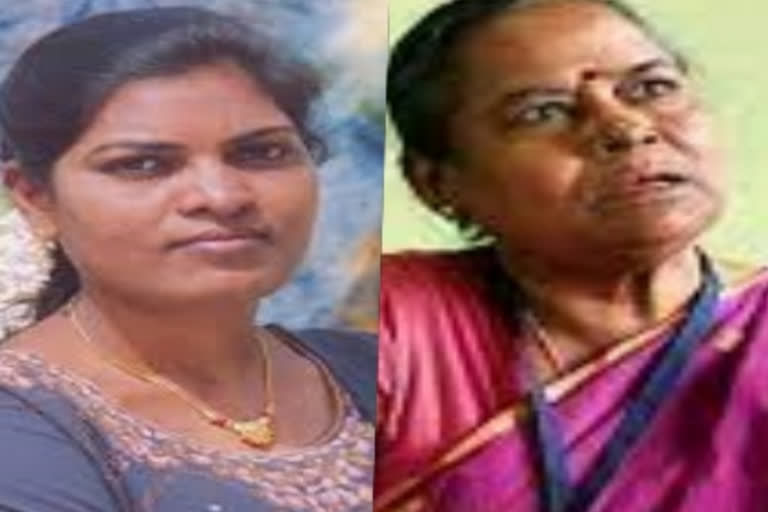Chennai: Anger and uproar greeted Delhi University's decision to remove from the syllabus, works of two celebrated Dalit women literary personalities from Tamil Nadu. It has invited the condemnation of a cross-section of leaders right from Chief Minister MK Stalin to CPI(M) MP, Su Venkatesan, an Akademi awardee.
The writers themselves have criticised it as a blatantly partisan move with feminist poet Sukitharani terming it as part of the move to crush the voices of dissent. According to her "the motive and intentions are very clear and the Union Government is behind this."
"Removal of my poem is worrying but not unexpected. Voices of dissent, especially that of Dalits and women, are constantly silenced. The Union Government is deliberately ignoring Dalit intellectuals and is playing caste politics," she said, speaking to ETV Bharat.
Her poems have been translated into English and are part of a few Anthologies of Contemporary Indian Poetry, including that of Oxford University. Some of them are part of the syllabus in universities abroad. Similar is the case with novelist Baama.
“All three of us whose works have been removed,” she says, "are voices of Dalits and the oppressed masses. They (central government) think that by silencing dissent they can hide India's casteist social structure. This is an attempt to promote their Hindutva agenda. They could have replaced our works with any other Dalit writers but they have replaced them with an upper-caste writer. They have included only those who subscribe to the Hindutva ideology. This is a casteist move and this should be seen as Hindutva politics," said the poet, whose language bristles with anger against social malaise."
English translation of Sukhartharani's two poems has been pulled out of the curriculum. One poem titled 'Kaimaru' (Gain) tells the horrible life of a manual scavenger. The poem describes the struggle faced by a worker and asks the readers whether it is possible to stop defecation for a day for the sake of manual scavengers. While manual scavenging is widely prevalent in society, she asks, "What's wrong in writing about that?"
Another poem 'En Udal' (My Body) narrates the burning issue of physical attacks on attacks on women and the commercialisation of their physique. Sukirtharani urges rational politicians, writers, parliamentarians, feminists to raise their voices against patriarchy.
Baama was furious. Speaking to ETV Bharat, she says that the Union government is removing all important works of Dalits and Adivasis from the curriculum as part of the implementation of the new National Education Policy (NEP). "The University didn't inform me about the removal. A secular government removing the literature on marginalised sections of the society is an indication of erasing their identities," she adds.
Her acclaimed novel 'Sangathi' depicts the oppression of women in the name of caste and religion. "It will shake the reader and instil the thought of freedom among women. Delhi University, A Central University, has removed this to put an end to the conversations on these issues in the academic campuses. It doesn't like social change. What more you can expect from this government?" she quips.
Accusing the central government of following Manuvadi policies and trying to stop women's upliftment, she said the sense of freedom and equality can't be stopped by this. For, the desire for freedom among women is indomitable, she remarked.
Not only Dalits, but anyone who believes in equality, democracy, and social change should raise their voice against the removal of Dalit literature from Delhi University, she further urged.
